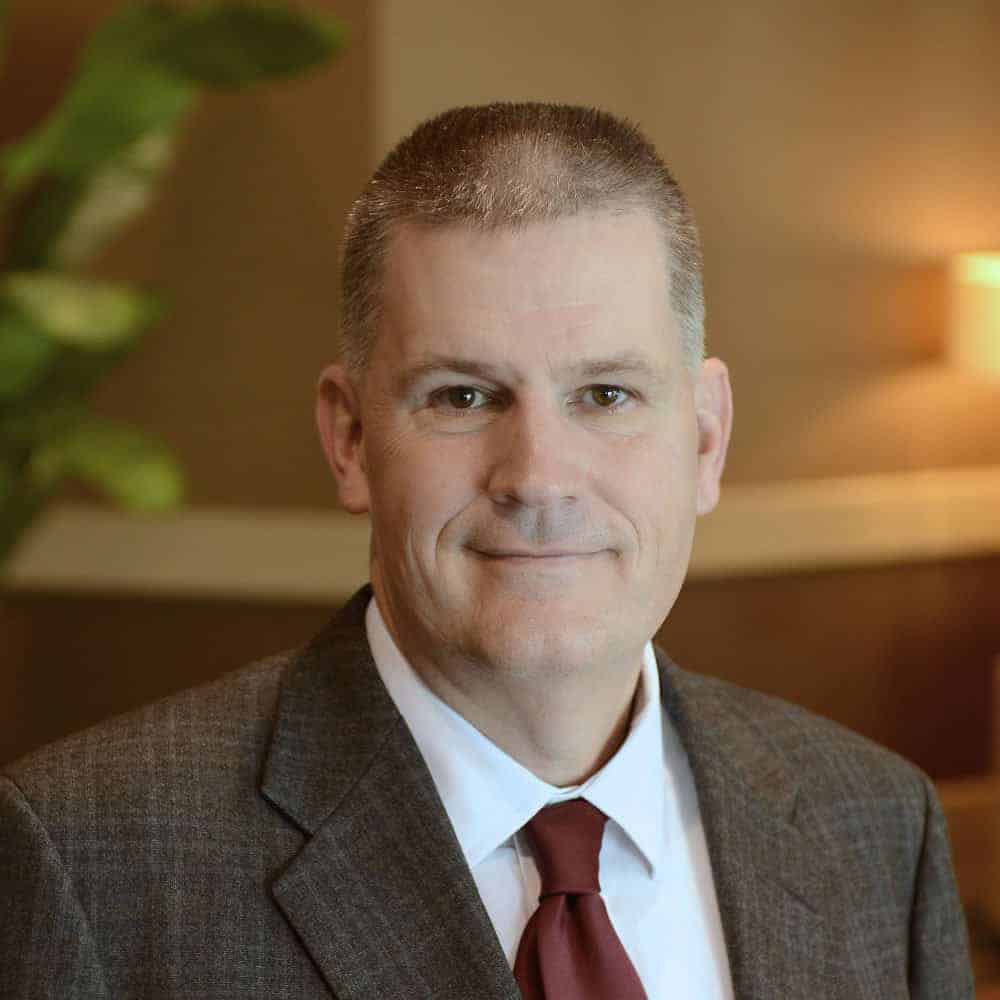New Medical Laboratory Sciences Director Looks to Future, Celebrates Program’s Past
| Nathan Johnson, Ph.D., has big plans for the Medical Laboratory Sciences program.
The new program director and associate professor, who started in November 2017, “hit the ground sprinting,” said College of Health Professions Interim Dean Susan Long, Ed.D. “He didn’t just hit the ground running — he took off in a full sprint.”
Johnson came to UAMS after retiring from the U.S. Air Force, where he spent nearly 28 years. His last position in the military was at the Department of Defense’s Center for Laboratory Medicine Services in Falls Church, Virginia, where he oversaw all Army, Air Force and Navy labs, making sure they complied with standards. He managed about 2,000 people in approximately 500 labs around the world.
He was drawn to UAMS because of its mission-driven approach to health care and education. At its core, UAMS is committed to improving the health, health care and well-being of Arkansans through education, high-quality care and research.
“When I retired from the military, I wanted to find a place where I could continue to be of service,” he said. “UAMS fit the bill perfectly.”
Johnson said his goal is “to have the best program in the United States” — a goal that is fully achievable because of the “high quality faculty and staff who are already hard at work for our students.”
One of his first steps to achieving that goal is expanding the program. While UAMS can handle 24 students Med Lab students on campus, the program hasn’t been running at capacity, he said.
“Thanks to some new faculty members, we are fully staffed, so there is no reason why we can’t get bigger.”
To that end, Johnson is looking outside Arkansas. Historically, the Medical Laboratory Sciences program only accepted students from Arkansas. But that isn’t the case any longer.
“The military has the largest associate’s degree medical lab sciences program that is out there,” said Johnson. “One thing we are doing is using distance learning to allow those medical lab techs in the military to obtain their bachelor’s degree.”
Arkansas also gives the military lab techs in-state tuition no matter where they’re stationed, said Johnson, a factor that makes UAMS very attractive.
Recently, the program held an Open House that included a virtual component, allowing UAMS faculty to welcome prospective students from Germany and Japan.
One reason it is so essential for UAMS to grow its program is the “tremendous need” for medical lab techs, Johnson said.
“Basically, we’re in what I call a laboratory professional tsunami,” he said. “The average medical lab technician in the United States is 50-plus years old, and our schools aren’t producing enough new techs to replace those who are retiring.”
Johnson also thinks that prospective students don’t realize the opportunities for advancement that are available in the field.
“Most of our students find out about the medical laboratory sciences by accident,” he said. “They knew they wanted to do something in the health care industry, and they kind of stumbled into the medical lab sciences.
“I like to tell students that the medical lab sciences are a great gateway program. The knowledge that laboratory professionals have prepares them to go on to nursing or medical schools or pursue a career in hospital administration.”
As Johnson plans for the program’s future, he is also honoring its past. The Medical Laboratory Sciences program celebrates its 100th anniversary this year, making it the one of the oldest programs in the country. All of the program’s alumni are invited to reunite at Alumni Weekend on Aug. 17-18.
“So much has changed in laboratory sciences since this program was founded — and UAMS has adapted to those changes and continued to provide a top-notch education,” he said. “It is truly an honor to be a part of a program with so much history.”
In honor of the 100th anniversary celebration, the college is looking for 100 donors who will give $250 to raise $25,000, which will help support the program. Such financial assistance will enable Johnson and other faculty members to continue their research and other program initiatives. Click here to support the Medical Laboratory Sciences!
